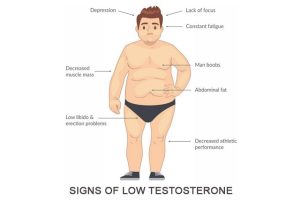Prostate removal surgery, also known as a prostatectomy, is a procedure performed to treat prostate cancer or benign prostatic hyperplasia (BPH). It involves the removal of the entire prostate gland and, in some cases, the surrounding tissues. While this surgery can be effective in treating prostate-related conditions, it is crucial to understand the potential side effects that may arise post-operation.
Types of Prostate Removal Surgery
There are various methods of performing a prostatectomy, which may influence the side effects experienced by patients. These methods include:
- Open prostatectomy: A traditional surgical approach, which involves making a large incision in the lower abdomen to access the prostate gland.
- Laparoscopic prostatectomy: A minimally invasive surgery using several small incisions and a laparoscope, a thin tube with a camera, to remove the prostate gland.
- Robotic-assisted laparoscopic prostatectomy: A technologically advanced method that uses a robotic system controlled by the surgeon to perform the procedure with increased precision.
- Transurethral resection of the prostate (TURP): A minimally invasive procedure that removes portions of the prostate gland through the urethra using a resectoscope.
Urinary Side Effects
Urinary side effects are common following prostate removal surgery, including:
- Incontinence: Some patients may experience temporary or long-term urinary incontinence, which is the involuntary leakage of urine. This can range from mild to severe, and may improve with time or require additional treatment, such as pelvic floor exercises, medication, or surgical intervention.
- Urinary retention: Difficulty in emptying the bladder completely may occur due to swelling, nerve damage, or scarring. In some cases, temporary catheterization or medication may be necessary to address this issue.
Sexual Side Effects
Sexual dysfunction is another common side effect of prostate removal surgery:
- Erectile dysfunction (ED): The inability to achieve or maintain an erection can be a result of nerve damage, blood vessel damage, or psychological factors following surgery. Treatment options for ED include medication, vacuum devices, or penile implants.
- Loss of ejaculation: Since the prostate gland and seminal vesicles are removed during surgery, the production and release of semen during ejaculation are affected. This can lead to a condition known as dry orgasm, which does not impact sexual pleasure but may impact fertility.
Bowel Side Effects
Although less common, bowel side effects may occur after prostate removal surgery:
- Rectal incontinence: In some cases, patients may experience difficulty controlling bowel movements, resulting in involuntary leakage of stool. Treatment options include dietary changes, medication, or biofeedback therapy.
- Constipation: Patients may experience constipation due to the use of pain medication or changes in bowel habits following surgery. Increasing fiber intake, staying hydrated, and using stool softeners can help alleviate this issue.
Psychological Side Effects
Prostate removal surgery can also have an impact on a patient’s mental health:
- Depression and anxiety: The physical side effects and changes to one’s body after surgery can lead to feelings of depression or anxiety. Seeking support from a mental health professional or joining a support group can help patients cope with these emotions.
Long-term Recovery and Monitoring
Prostate removal surgery necessitates a prolonged recovery period, and patients may require continuous observation and attention. Close collaboration with your healthcare team is crucial to manage any adverse effects and oversee your overall well-being.
Conclusion
Prostatectomy is a viable therapy for prostate cancer and benign prostatic hyperplasia. However, it’s paramount to acknowledge the potential short and long-term repercussions. With cognizance of these effects and close collaboration with your healthcare professionals, you can optimize postoperative recuperation and enhance your quality of life.
Post-Surgery Rehabilitation and Management
Proper rehabilitation and management after prostate removal surgery can help minimize side effects and enhance recovery. Some strategies include:
- Pelvic floor exercises: Strengthening the pelvic floor muscles can improve bladder control and reduce the risk of urinary incontinence. Consult with a physical therapist for guidance on performing these exercises correctly.
- Lifestyle modifications: Adopting a healthy diet, staying physically active, and maintaining a healthy weight can help promote recovery and overall well-being. Discuss any dietary or exercise changes with your healthcare team.
- Sexual rehabilitation: Communication with your partner and exploring new ways to experience intimacy can help address sexual side effects. Discuss with your healthcare provider any concerns or questions about sexual function and available treatment options.
- Psychological support: Seek professional help from a mental health provider or join a support group to manage feelings of depression or anxiety. Emotional support from friends and family is also essential during the recovery process.
Preventing Complications and Monitoring Progress
Regular follow-ups with your healthcare team are crucial to monitor your progress and prevent potential complications:
- Regular checkups: Schedule regular appointments with your healthcare provider to assess your recovery and discuss any concerns or side effects. Early detection and intervention can help address issues before they become more severe.
- PSA testing: Prostate-specific antigen (PSA) levels should be monitored regularly to detect any signs of prostate cancer recurrence. Follow your healthcare team’s recommendations on the frequency of PSA testing.






